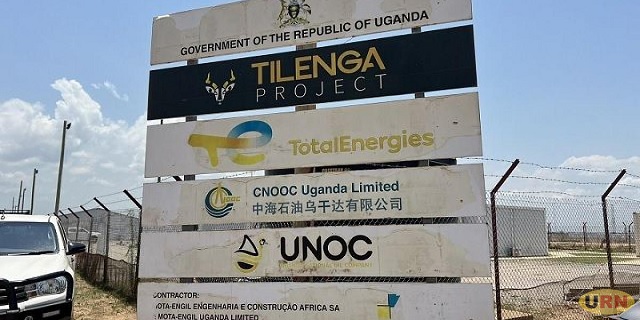
Hoima, Uganda | THE INDEPENDENT | A section of lawyers have endorsed a plea to convene an extraordinary general meeting of the Uganda Law Society, to address concerns surrounding perceived judicial misconduct attributed to Justice Jesse Byaruhanga Rugyema in a case about the Tilenga oil land dispute.
Initiated by human rights lawyer Eron Kizza, the petition, among other accusations, contends that Justice Byaruhanga violated established legal principles by delivering a verdict in the land case within four days, without allowing the accused parties to respond or contest the matter.
“When a judge, oozing impunity, deliberately denies parties to a case/suit an opportunity/right to be heard, to contradict the evidence, to file their submissions; and hastily makes orders for the benefit of TotalEnergies Exploration and Production Uganda to prejudice of Ugandans’ homes, gardens, residences, livelihoods, dignity and property, he is undermining rule of law and fundamental human rights and freedoms,” the petition reads in part.
The petition contends that such behavior not only violates established legal norms and defies logical reasoning but also undermines the rule of law. This has led to a challenge to the legitimacy of both the specific court and Justice Byaruhanga, eroding public trust in the judiciary.
On December 8th, Justice Byaruhanga ruled against 42 landowners refusing the government’s proposed compensation rates. The compensation aimed to facilitate the relocation of these landowners, clearing the path for the development of oil infrastructure as part of the Tilenga project by TotalEnergies.
Justice Byaruhanga directed the government, represented by the Ministry of Energy and the Attorney General, to deposit compensation funds with the court. Furthermore, he ordered the vacant possession of 59.674 acres of land for petroleum activities under the Tilenga project.
For the petitioners, this ruling was groundbreaking, given that land disputes typically linger in the court system for years without resolution. After examining the circumstances surrounding the matter, lawyers sought their umbrella body to take a formal stance on the alleged misconduct and initiate processes to prevent its recurrence in the future.
“Accordingly, we need an AGM to debate and resolve the issues raised…form a formal ULS position on the said dereliction of impartiality, rule of law natural justice and fair hearing…indicate further actions to avoid further repetition of such threats to due process, rights of citizens,” adds the five-paged document.
Before submitting the petition to the Uganda Law Society, the same group of lawyers had already lodged a separate complaint with the Judicial Service Commission. They accused Justice Jesse Byaruhanga Rugyema of judicial misconduct, incompetence, and bias in a Tilenga oil land dispute case.
In this earlier petition to the commission, the lawyers called for appropriate disciplinary actions against the judge and requested measures to prevent him from presiding over future cases related to oil.
“Prohibit his lordship Byaruhanga Jesse Rugyema from handling any matters relating to oil and related compensations in the high court of Uganda at Hoima and take any other appropriate action to reconstruct the shredded credibility of that supposed temple of justice,” the petition to Judicial Service Commission reads in part.
During a recent interview, lawyers Eron Kiiza and Dickens Kamugisha, the Chief Executive Officer of the Africa Institute for Energy Governance (AFIEGO), expressed concerns that Justice Byaruhanga’s judgment in the Tilenga Oil Land Dispute case could establish an unfavorable jurisprudential precedent, potentially enabling the government and individuals to forcibly acquire others’ land and properties.
The lawyers emphasized their commitment to assisting the affected individuals in appealing the matter in the Court of Appeal, seeking to safeguard against the establishment of a precedent that could adversely affect property rights.
*******
URN
 The Independent Uganda: You get the Truth we Pay the Price
The Independent Uganda: You get the Truth we Pay the Price



